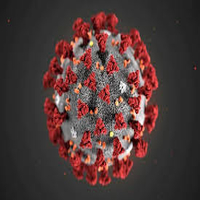The day after I posted my initial blog on COVID-19 in relation to our pets, WHO declared this novel coronavirus to be a pandemic. Shortly after that, Canadians were asked to socially distance from people outside of our immediate household and stay at or work from home as much as possible. This continues to be a rapidly evolving situation in which scientists around the world are working tirelessly to gain better understanding of this virus.
Since the posting of my previous blog, new research on COVID-19 as it pertains to our pets has become available. More dogs and cats from COVID-19 positive households have been tested in Hong Kong. A total of 2 out of 17 tested dogs have been positive and 8 cats have tested negative. Both positive dogs reported no clinical signs of illness and transmission for both are considered to be from infected human to dog. There have been no reported cases of transmission from pet to human. In Belgium there is a reported COVID-19 positive cat that had respiratory and digestive issues 1 week after its owner tested positive. However the details are sparse and it is unknown if the cat’s clinical signs are related to it being positive for COVID-19 or merely a coincidence.
In a yet to be reviewed and published study, researchers inoculated, via the nose, a very small number of dogs, cats and ferrets with COVID-19. The pets were then tested a number of days later to see if they were positive for the virus and monitored for clinical illness. They also housed the infected dogs and cats nearby but without physical contact to other dogs and cats. They then tested the non infected animals to see if they become positive with the virus.
The results showed that although a dog can become infected, there was no transmission from dog to dog. Cats can become infected and there is a possibility that they can transmit it to other cats however they did not seem to become ill from the virus. Ferrets seemed susceptible to the virus and some developed loss of appetite and fever.
In summary the current information suggests that there is a possibility that humans can transmit this virus to our dogs, cats and ferrets.There is some evidence that cats can transmit this virus to other cats. Ferrets can become ill from this disease but our dogs and cats do not seem to be affected by the virus. There is currently still no evidence that infected animals can transmit this disease to people and this risk is considered low.
Recently there has also been a lot of talk about the potential for mechanical transmission of the disease from animals to humans. By this I mean the possibility that an infected person comes in contact with the haircoat of a pet, and then an uninfected person becomes infected by contact with that contaminated haircoat. It is considered very unlikely that a sufficient amount of virus would remain on the hair coat long enough to transmit infection and this route of infection is considered only theoretical. In addition, by practicing proper hygiene such as hand washing before and after handling an animal would further decrease an already only theoretical risk.
Our pets are our great companions, especially during this time of limited face to face human interaction. The greatest risk of becoming infected ourselves at this time is still from contact with another infected person. However there are some helpful tips that can help us continue to keep our pets and ourselves healthy:
- Wash hands before and after touching an animal, do not touch your face with unwashed hands
- Avoid coughing or sneezing on animals.
If you have COVID-19 related symptoms or are self isolating due to contact with a Covid-19 case, you should follow similar recommendations around your pets as you would around people in these circumstances.
Specifically:
- Avoid close contact with your pet and other animals during the illness
- If possible have another member of your household care for your pets. –
- Avoid having your pet contact other people and animals outside the household until your illness is resolved.
At Amherst we are aware that your pet is a loved member of your family. We hope that by keeping you up to date with information about COVID-19 as it pertains to your pets that we can help you keep yourself and your pet healthy during this time. Stay healthy and enjoy this extra time at home with your pet.
Dr. Loretta Yuen D.V.M

